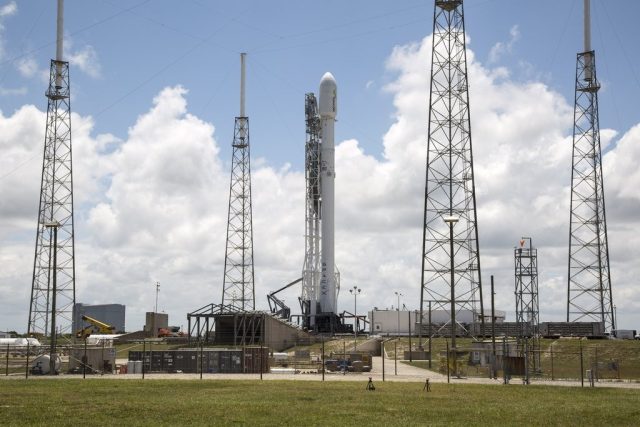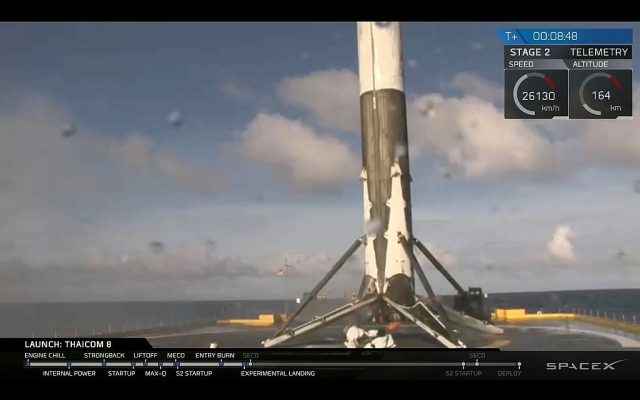
Update: SpaceX did it, successfully delivering its payload and landing the first stage of the Falcon 9 rocket for the third time in a row on an autonomous drone ship. It's safe to say the future has arrived.
Original story: Despite a two-hour window to get off the ground, SpaceX was unable to launch its Falcon 9 rocket this Thursday. According to the company's founder, Elon Musk, the company couldn't conduct the launch due to "a tiny glitch in the motion of an upper stage engine actuator." Better to scrub for 24 hours to investigate the problem and ensure the rocket's readiness, he said.
Whereas the weather was nigh perfect on Thursday, it's a tad less so today. Forecasters anticipate a 60 percent chance of "go" conditions for launch when the two-hour window opens at 5:39pm ET (10:39pm BST). Fresh off two straight launches and unprecedented water landings of its Falcon 9 rocket, SpaceX will try for its third sea-based landing this evening after it launches a 3,000kg Thaicom communications satellite to a supersynchronous transfer orbit.
Like a similar launch three weeks ago, the Thaicom mission requires the first stage of the Falcon 9 rocket to reach a high velocity relative to the Earth's surface before separating from its payload. "As with other missions going to geostationary orbits, the first stage will be subject to extreme velocities and reentry heating, making a successful landing challenging," the company stated in its mission overview.
SpaceX has shown it can land in relatively benign reentry conditions, as it did in April after delivering a payload to the International Space Station. Earlier this month, the company also landed a rocket in "hot and fast" conditions. A successful landing tonight would prove that SpaceX has taken a big step toward making sea-based rocket landings—if not routine—at least something that can be attempted with a reasonable expectation of success.
A live webcast of the launch and subsequent landing attempt about 10 minutes later should begin approximately 20 minutes before the launch window opens:
reader comments
127